Top 10 Best Web Backend Frameworks in 2024 for Web Development
A detailed discussion of what backend web frameworks are, why they are important, how they can ease things for devs, and the 10 best frameworks in 2024.
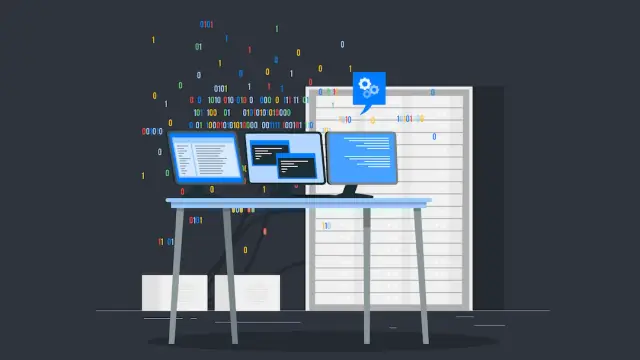
As web applications are becoming increasingly popular and more important in our lives, programming and developing is also becoming easier.
Experts are speaking about a "democratization of coding and technology," meaning that, while until some years ago, coding and programming were accessible only to those few who had a strong and long education about the matter, today, more and more people - with lower specific knowledge - are capable of creating software.
This is possible because, quite simply, software development is becoming easier: there are today a lot of tools at the disposal of developers that make things easier for both beginners and experts. Backend web frameworks are among the most important programming tools developers can count on today. In this article, not only are we going through what a backend web framework is and how it can ease and accelerate the programming process, but also what are the 10 best backend web frameworks in 2024.
What is a backend web framework?
A backend web framework is a software tool that can automate some aspects of the web development process, making it easier and quicker. More precisely, a backend web framework is a library of models and tools that can help the developer build the architecture of their website, web application, mobile app, or software.
To clarify, we can make an example: think of a backend web framework like a template for a graphic design project. Without the framework, you have a white canvas where you need to build every piece, manually design every element, pick any color and position, and make sure that everything can work together. With a template (or a framework), you have half the job already done: you have a given structure that you can customize as you like, and you also have pre-built elements that you can use and integrate together instead of building them one by one and then integrating them.
With a backend web framework, the developer's work is easier in the same way: instead of having to code every single line in different programming languages, the developer can exploit a given structure and given tools and modules to build their application.
Benefits of using a backend web framework
The benefits of using a backend web framework go beyond the ease and speed of the programming process. Yes, using a framework is time-saving, and yes, it makes things easier for both expert and beginner developers, but a backend web framework also provides:
- Security: a framework provides security from many points of view. Security from external attacks and issues, crashes, slowness, and other negative aspects could lower the quality of the application you're building.
- Scalability: frameworks are very flexible. Once you've picked the right backend framework for your project - and in this article, we're helping you with your choice - you can use the same framework as you build up your web application from a very simple. software tool to the most complex web platform.
- Integrations: frameworks also make integrations easier because they provide pre-build tools to handle this aspect too.
Types of backend web frameworks
There are two main types of backend web frameworks:
Client-side web framework
These are the frameworks that are more strictly focused on the user interface. As you may know, the client side includes all the aspects connected to what the user sees, visualizes, and how they can interact with the application.
Server-side web framework
The server-side framework is instead used for backend functionalities: database manipulation, data management, web server management, and so on. There are also other ways of classifying web frameworks: one way of identifying the different types is, for example, taking into consideration the programming languages they are based on: Python, Javascript, PHP, and .NET are the most popular, but there is also another alternative: it's given by the no-code approach. Platforms like AppMaster can provide a no-code framework for your mobile or web application. What is it about?
No-code frameworks: what are they?
No-code platforms like AppMaster provide a very solid and yet flexible framework: solid because it provides security and because it allows you to use and integrate pre-built elements that can be very complex; flexible because AppMaster provides the highest level of freedom and customization.
But, let's take a step back: how can you develop your web application with AppMaster?
With AppMaster, you are provided with architecture and pre-build elements that you can integrate and use using a visual interface. Because of this, you can create an app without writing a single line of code. You don't need to know or learn programming languages, and you don't have to. The programming process is quicker and easier.
Furthermore, AppMaster generates the backend code automatically. It also provides you access to the source code so that you can export, save, edit or do anything you like with it. By acting on the code itself, you can have full control of the software you're creating.
Best backend web frameworks in 2024
Now that you know what a backend web framework is, how it can ease your work as a developer, and what are the different types of frameworks, we can move on to recommend the 10 best web backend frameworks.
Django
If you need to build a website, especially if it's particularly complex, you can opt for Django. It's a Python-based web framework that is focused on building database-driven and complex websites. If having a high-performance website is a priority for you, then you should opt for Django.
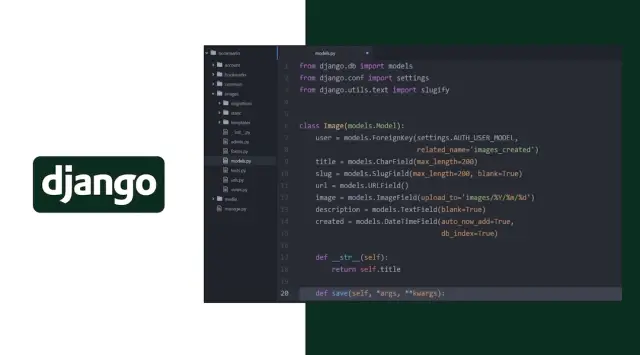
Advantages of using Django
- Django is known for being very scalable. In particular, its code-reusability feature makes it easier for developers to adjust to increasing traffic on the website.
- Django is SEO-oriented, meaning that websites based on it are easier to optimize and make SEO-friendly. One of the main reasons for it is that you can maintain Django-based applications on servers via URLs rather than IP addresses.
- Being a very popular backend framework, Django can count on a large community ready to provide support to everyone exploiting the tool.
- No-code oriented: Django IS NOT a no-code framework, but it has some no-code features; there are packages that the developer can utilize without using any code.
- Versatility: as mentioned, Django is particularly suitable for database-driven websites, but, that said, it is very versatile. You can use it for creating any type of website.
What is Django most suitable for?
If you are creating a database-driven website, then Django is one of the best web development frameworks for this purpose.
AppMaster
We've already mentioned AppMaster as an example of a no-code web development framework. In fact, when it comes to no-code and low-code, AppMaster is a true point of reference for many developers.
AppMaster provides a framework architecture for your projects that allow you to, if you want, avoid using code and programming languages at all. With a visual interface, you'll be able to create your web application or mobile app, add functionalities, publish it, and more.
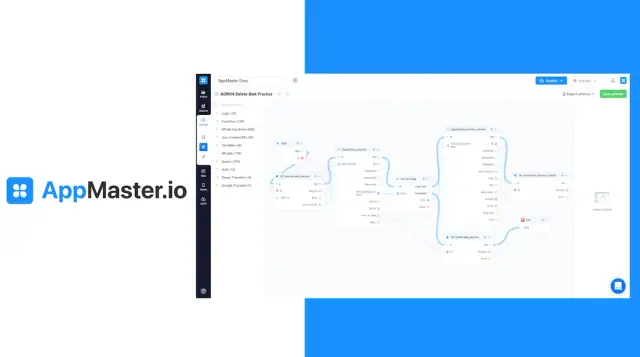
Advantages of using AppMaster
- AppMaster is ideal for beginners because it doesn't require the developer to be an expert in the use of programming languages.
- AppMaster is also helpful to expert developers: it helps them ease and fasten their work because they can automate some processes (for example, they can generate the code automatically while using the visual interface, which is always quicker than manually writing every single line of code with different programming languages).
- AppMaster automatically generates the source code and allows the developer to edit it. You can edit the backend code if you know development programming languages.
- AppMaster also provides features that help during the launch process when you need to finally publish the mobile app or web application and the following updates.
Who is AppMaster suitable for?
AppMaster is a no-code platform designed to create web applications and mobile apps. If you need to create one of the two, AppMaster would be your ideal choice, whether you are a beginner, an amateur, or a professional developer.
Express.js
Express.js is a Node.js web application framework. Just like AppMaster, it is aimed at creating web applications and mobile apps, but this is not a no-code platform, so if you are not familiar with development programming languages, then your choice should still fall on AppMaster. Among knowledgeable developers, however, Express.js is a very popular backend framework, and it has been used to create famous web applications like MySpace and Uber.
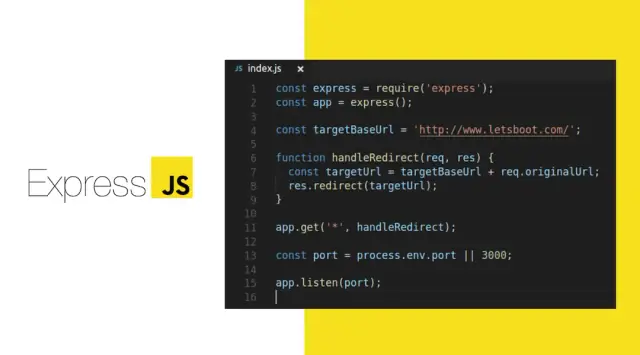
Advantages of using Express.js
- Many standard Node.js features are available that can ease the developer's work.
- Express offers some templates that help you create web pages.
- Debugging is made easier in Express.js because it is easier to identify the precise parts of code that contain bugs.
- Express.js is a very scalable framework; as we've mentioned, scalability allows you to stay with the same framework as your project and needs grow.
- Because Express.js is a very popular backend framework, developers can count on a large community to support each other work and provide help when needed.
- With Express.js, you use the same programming language (JavaScript) for both frontend and backend web development.
Who is Express-js suitable for?
If you are very familiar with JavaScript but feel insecure with other programming languages, Express.js can be the perfect backend framework for you.
Flask
From a JavaScript-based backend framework, let's move on to a Python-based backend framework: it is Flask. Flask is, in particular, a WSGI framework: it runs the web server rather than the user's browser. A lot of modern web applications run on Flask because it allows them to create very personalized projects that run smoothly.
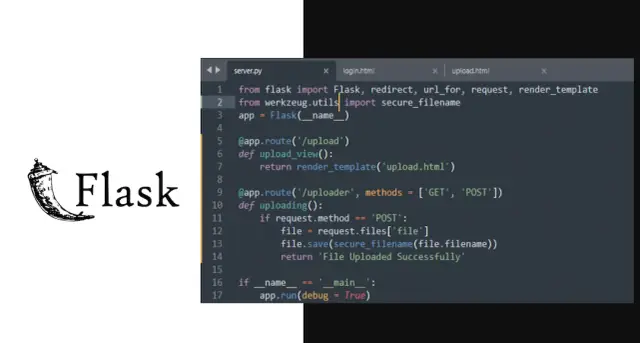
Advantages of using Flask
- With Flask, you are provided with an in-built web development server: it makes debugging easier, and it allows developers to implement Python code in the browser when mistakes occur with the request.
- Being based on Python, FLask allows you to develop your application quickly. Python is known for requiring less coding than other development programming languages.
- With Flask, you can easily set up web servers.
- Quick learning curve: Flask is not known for being easy to learn; the community around Flask is so large that you can find tons of documentation and tutorials. A lot of documentation comes from Flask developers themselves. Even beginners can learn quickly.
Who is Flask suitable for?
Any developer familiar with the Python programming language can easily use Flask. Furthermore, if you need to focus on server-side web development, Flask is the ideal backend framework.
Laravel
From Python, we can now move on to PHP. If you are searching for a PHP-based framework, then Laravel is known for being the ideal choice. It's open-source, and it's specifically designed to create a Symfony-based web application that follows an MVC architecture. If you need to focus on backend development, experts say this is your ideal backend framework.
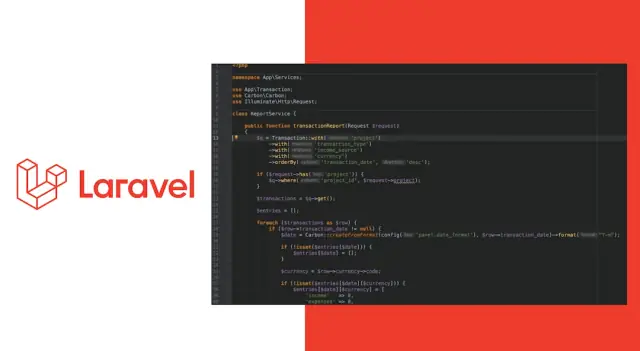
Advantages of using Laravel
- Laravel offers a lot of security features. It also uses an algorithm (the Bcrypt Hashing Algorithm) for creating passwords that make them highly secure.
- Templates: with Lavarel, you can exploit tons of in-built templates to create layouts and content.
- Other than PHP, Laravel provides widgets with CSS and JS code.
- Ideal for creating complex projects.
- One of the most important Laravel features is the presence of the simple API that works with the SwiftMailer library.
Who is Laravel suitable for?
Laravel isn't suitable for beginners at all. It's also too complex if you need to manage a simple or small project. Laravel is only suitable for expert developers, familiar with many programming languages and how to integrate them, that need to work on complex projects.
Ruby on Rails
Ruby on Rails is a web development framework based on the Ruby programming language. It's also open-source. Ruby isn't the most popular programming language, yet Ruby on Rails is a very popular backend framework because it helps developers during the programming process by providing simplicity, automated testing, and libraries.
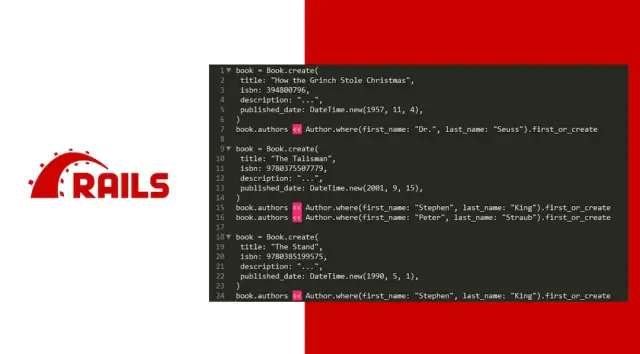
Advantages of using Ruby on Rails
- Ruby on Rails runs automated tests on the code that the developers write. It helps save tons of time!
- Ruby on Rails is also very versatile and flexible. It allows developers full control over their projects: they can decide how the application database should work. Then, the framework would create the code automatically and according to the developers' instructions. Again, this is a way of making things easier and quicker.
- Ruby on Rails provides a lot of libraries where developers can find any tool they need to build their databases.
Who is Ruby on Rails suitable for?
Beginners can learn Ruby on Rails very easily. For this reason, this type of web development framework is considered suitable for learners or beginners.
Spring
Spring is a web development framework that uses Java. It has been used for creating many very popular and high-functioning websites like Wix, a complex website-building platform.
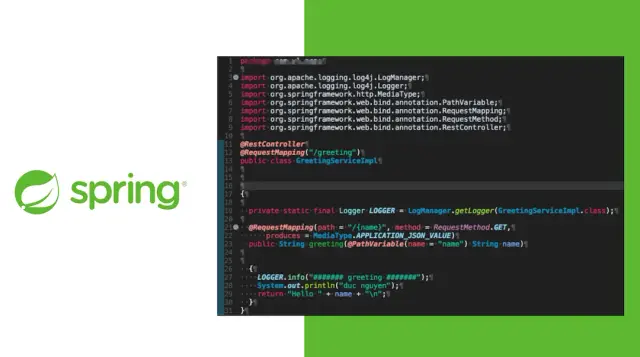
Advantages of using Spring
- Being based on Java, a very popular programming language, Spring is very popular and can count on a wide community for support.
- It comes with many sister projects that can boost Spring's performances.
- Spring is very scalable, especially thanks to the side projects that come with it.
Who is Spring suitable for?
If you are familiar with Java, the Spring web development framework can be suitable for you.
ASP.NET Core
ASP.NET is an open-source development framework used for creating .NET applications. It uses C# code, and it's the ideal web framework if your priority is providing a positive user experience for your users.
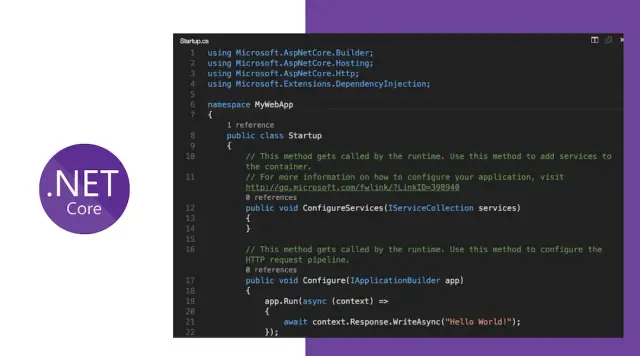
Advantages of using ASP.NET core
- It is highly specialized.
- It uses JavaScript, which is one of the most popular programming languages.
Who is asp.net core suitable for?
If you need to build mobile or web applications and ensure a smooth experience for your Windows users, then ASP.NET Code is the ideal architecture to work on.
Fiber
Fiber is the server-side development architecture for Go developers. As you may know, Go is an open-source programming language that can be used for general purposes and was developed by Google engineers.
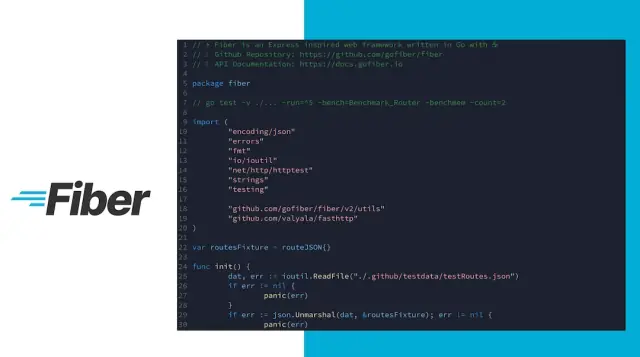 Advantages of using Fiber
Advantages of using Fiber
- It's a lean but powerful framework.
- Being lean, it is also considered highly scalable.
- It can be easily integrated with third-party libraries.
Who is Fiber suitable for?
If you need to create a general web application, then you can work smoothly with Fiber.
CakePHP
CakePHP can be considered an alternative to Ruby on Rails for PHP developers.
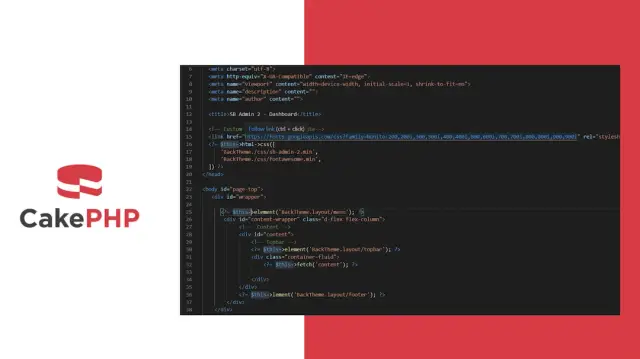
Advantages of using CakePHP
- It's suitable for both simple, beginner's projects, and very complex ones.
- It's highly scalable.
- It brings the advantages of Ruby on Rails to PHP developers.
- Quick learning curve.
Who is CakePHP suitable for?
If you are familiar with the PHP programming language, then CakePHP can provide the ideal architecture on which to build your web application at any level.
Conclusion
Most of these frameworks are written in popular programming languages , offering great functionality and features to implement your project. Choosing the right server environment depends on the unique requirements of your project, and it's up to the task to consider which server framework is best to use.
After all, how we understand the purpose of a web development framework is to reduce the amount of code you need to write. And the most effective way to reduce the amount of writing code is to pay attention to the no-code AppMaster platform. The number lines of code are guaranteed to be reduced to zero.






